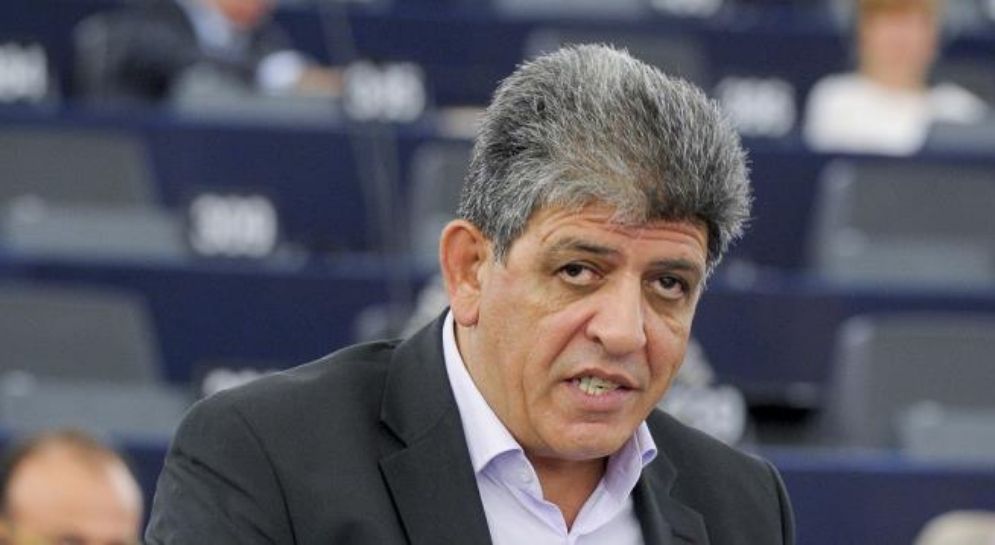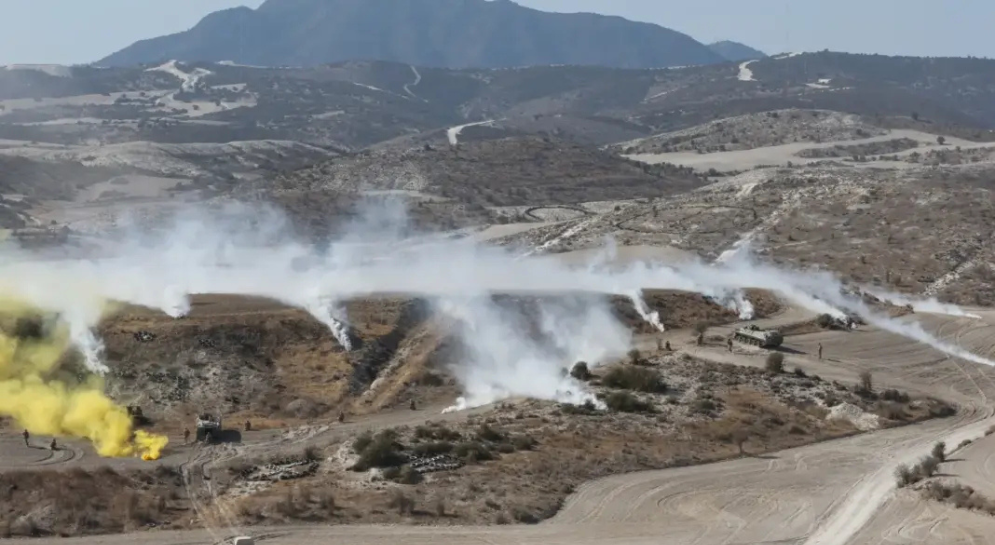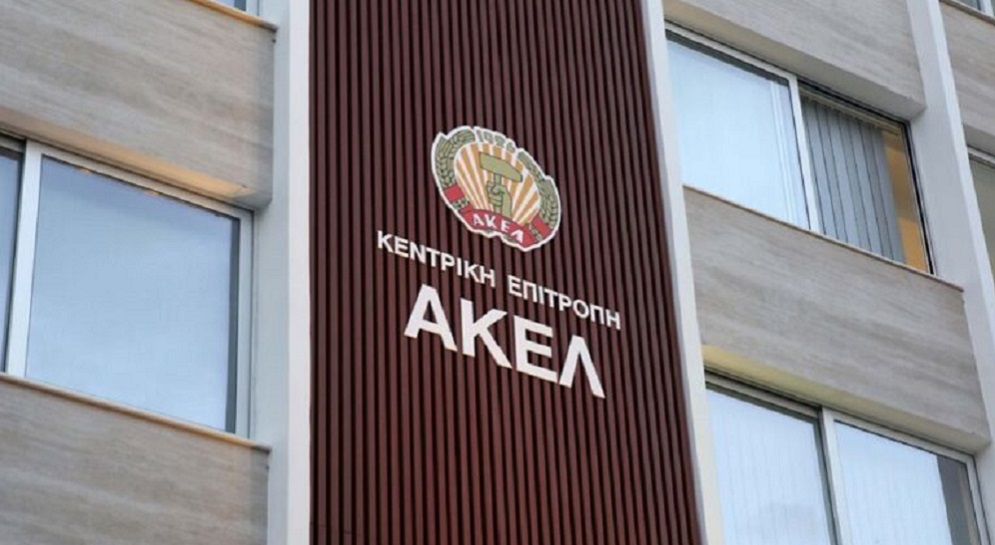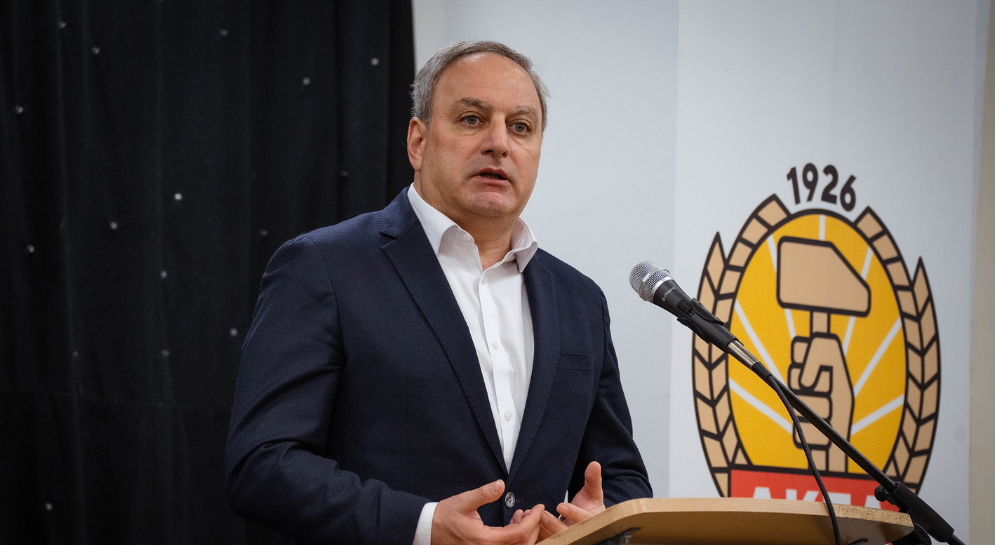
Interview with Neoklis Sylikiotis, AKEL Political Bureau member
25th April 2021, ‘Haravgi’ newspaper
Q: During the 8-year Anastasiades-DISY administration, numerous scandals have been revealed. Do you think that entanglement/interwoven interests has been introduced into the functioning of institutions?
NS: In recent years, Cyprus has plummeted in the indicators on corruption, with ‘Transparency International’ figures ranking it lower and lower.
Corruption in Cyprus concerns institutional entanglement/interwoven interests, as the scandals involve the President of the Republic himself, Ministers and government officials.
Cyprus has been denounced for its “golden” passports scheme by the European Commission and other European and international bodies. It is characteristic that the EU itself was forced to initiate infringement proceedings against the Republic of Cyprus.
Hundreds of passports have been issued to international fraudsters, through illegal and irregular procedures. Worst of all, Mr. Anastasiades’ family law firm is scandalously involved. It is unheard of for the President’s family business to submit requests to the Council of Ministers for the issuance of passports, for his family members to receive millions of euros in profits from this case and to pretend that nothing is wrong. Nor is the argument plausible that his law firm provided 57 passports. Even if we were talking about a single passport, a question of entanglement/interwoven interests would arise.
This is precisely the problem. Mr. Anastasiades does not understand, or pretends he doesn’t understand, what corruption and entanglement/interwoven interests mean. His stance on the issue of his family vacations in the Seychelles with the private jet of his Saudi tycoon friend, who was granted a passport for himself as well as for his large family, is shocking proof of that.
I must say it takes a lot of audacity for the government and DISY to claim that they were forced to engage in irregular procedures with their passports so that the Cypriot people would not go hungry (due to the promised supposed investment). The government cannot say that the government’s Investment for Citizenship program contributed 8 billion euros to the Cyprus economy, given that the lion’s share was pocketed by certain privileged families, including the families of the President and government Ministers.
The passports scandal is the biggest scandal in the long list of all the Anastasiades government’s scandals, which, among other things, include the outflow of deposits before the haircut on bank deposits, the sell-off of the Cyprus Cooperative Bank and much more.
Q: People’s quality of life and especially their economic situation is getting worse. Do you think that this is connected with the scandals?
NS: Socio-economic inequalities are widening and a large section of the population is being driven to impoverishment.
A tough neoliberal policy is being pursued that reduces people’s incomes, while promoting the interests of the privileged few. This was done through the government’s Investment for Citizenship Program. At the same time, numerous social programs have been cut, resulting in a state that is socially insensitive.
Furthermore, the closure of the Cyprus Cooperative Bank thousands of small and medium-sized enterprises, farmers and citizens who were receiving professional and housing loans have been left exposed, as the Cooperative Bank also played a social role.
Q: What role can AKEL play in stamping out corruption, but also what are AKEL’s proposals for economic support of the popular strata?
NS: AKEL has long ago submitted proposals and measures, such as the proposals tabled before Parliament on corruption issues.
One of our proposals is the introduction of a specific term of office for independent officials, such as for the position of the Attorney General and Assistant Attorney General, but also the setting of specific preconditions that must be met for their appointment.
We have also submitted a proposal for the protection of persons who file complaints about corruption offenses, that is to say public witnesses (whistleblowers) at the workplace, but also in society at large. It should be noted that the EU has approved a relevant Directive that protects whistleblowers, which must finally be incorporated into Cypriot legislation.
Another proposal that AKEL has submitted in Parliament, concerns the regulation for an asset and funds-source declaration, the obligation of the persons under investigation/scrutiny to reveal an interest they hold in legal persons in the Republic of Cyprus and abroad. Our proposal also includes the exercise of effective scrutiny over those holding public office.
Of course, where laws end, everyone’s obligations and priorities in politics begin, given that what is legal is not at the same time moral too.
The militants of AKEL, with their stance and way of life, stand against corruption. We must first and foremost set an example and confront immediately any phenomena that occur within our own ranks.
As to the measures providing support to people that have been implemented due to the pandemic, many of them bear the stamp of AKEL. At the same time, however, we believe that they should not extend just to a short period of time, because the pandemic’s effects will increase in the near future. We have tabled legislative proposals to provide further support towards working people, but also for the abolition of the 12% penalty for those choosing to retire at 63.
Other support measures for small and medium-sized enterprises and households should also be approved. AKEL has already submitted numerous proposals towards this end.
In the upcoming parliamentary elections, AKEL must emerge stronger, so that the foundations for a progressive change in 2023 are laid and we can rid ourselves of the government of the Right.
Q Many analysts point out that the Cyprus problem has reached a critical juncture. How have we been led to this point and what stand should the Republic of Cyprus take?
NS: The stagnation observed on the Cyprus problem over the past four years has made it easier for Turkey to proceed with the promotion of its plans, such as the illegal drilling in the Exclusive Economic Zone of the Republic of Cyprus, the fait accompli imposed in Famagusta, but also the actions Turkey is carrying out against the Turkish Cypriot community, such as imposing the teaching of the Qur’an in schools.
According to the Report of the Secretary General of the United Nations (09/2017), the Greek Cypriot side and the President of the Republic itself are not without responsibilities, as responsibilities are assigned on both sides, with Turkey relieved of responsibilities.
In recent years, we have witnessed political transformations and regressions on the part of Mr. Anastasiades with regards the core issues and especially about political equality. What is the purpose of all this talk about ‘loose decentralized federation’, given that there are convergences agreed on the federal competences and the effective participation of the Turkish Cypriots? The UN Secretary General in his Report pointed out that the issue of effective participation of the Turkish Cypriots was resolved at the end of the conference at Crans Montana.
At the same time, we are following DISY in a theatre of the absurd. DISY is trying to appear as a fervent advocate of political equality, but the official positions of its leading members question political equality. The DISY vice-president himself talks about a “new realism” on the Cyprus problem, turning a blind eye to unacceptable positions.
Partition is knocking on our door. Partition means the ‘Turkification’ of Cyprus. The only way to prevent this is by being consistent in our support of the basis of the solution, namely bi-zonal, bi-communal federation with political equality, as defined in the UN Security Council resolutions, but also by continuing the talks on the basis of the Guterres Framework and on the convergences that have been achieved so far.
We urged Mr. Anastasiades to accept in practice the acquis of the talks and to demonstrate readiness to submit bridging proposals only on the pending issues of the Guterres Framework; to submit proposals on the issue of hydrocarbons, which on the one hand will safeguard the Greek Cypriot side and on the other hand to allay the concerns of the Turkish Cypriots and Turkey. If he does that, then we will have the prospect of a solution. If not, he should ensure through his stance that the responsibility for any possible new deadlock will lie solely with the Turkish side.




